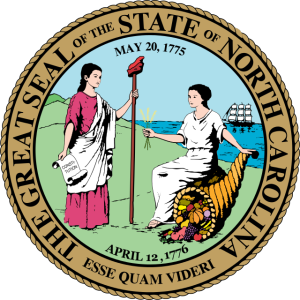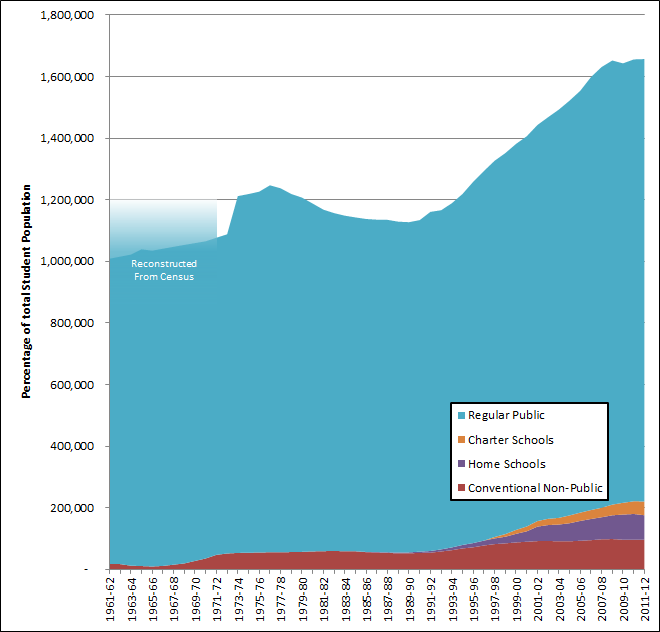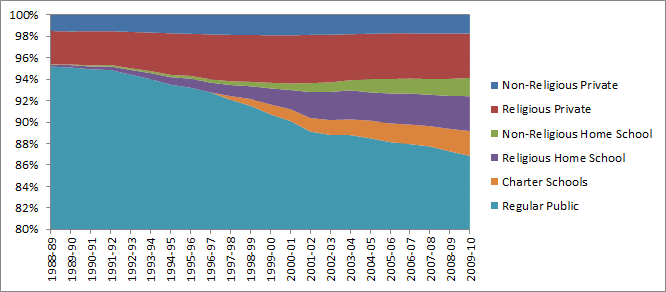
I’ve been digging through some education data from the state of North Carolina and the numbers point to a simple truth: if you trust parents by giving them more educational options to choose from they will exercise that choice.
Prior to the 1980s, the only two official education options available in North Carolina were public or private schools. In 1980s, a series of legal battles paved the way for home instruction options for parents. Then in 1988, the state legislature passed what is still currently North Carolina’s home instruction law.
Beginning in the 1990s, the charter school movement took off. “The North Carolina charter school movement began in 1996, when the General Assembly approved the Charter School Act (CSA)” . . . which “allowed any person, group, or non-profit organization to propose a charter school.” (View Source)
In the graph below, note how homeschooling as a market share begins to grow rapidly beginning near the end of the 1980s, which corresponds to the changes in homeschool law in the state. Note also how charter schools begin to take on a larger market share beginning near the end of the 1990s which again corresponds to changes in the laws.

Here’s another graph that allows us to closely look at the growth of non-traditional education (i.e., non public school.) in NC.

Here are three main points that the data shows:
- Since home schools were legalized in 1985, the market share of home schools has risen to about 4.8%, while over the same period the market share of public schools fell by 7.7% (see next point).
- The same appears to be true of charter schools. Since 2000, the charter school market share grew to about 2.7%. The total growth in market share of home schools and charter schools combined (7.5%) corresponds almost exactly to the decrease in public school market share (-7.7%) since 1985 in North Carolina.Â
- Home school market share and charter school market share are positively correlated, indicating that the same factor or factors are likely to be affecting each of them.
Opportunities for greater school choice in North Carolina began with key legislative efforts to support homeschooling and charter schools. With a little over two decades worth of data showing the result of those changes in legislation you can see in the data a pent up demand among parents for more education options and when those opportunities are available then parents will begin choosing them. Or put more simply, “If you build it, they will come”. As more choices open up for parents across the country you can see a similar response, a pent up demand for more education options for their kids. Let’s trust parents more.